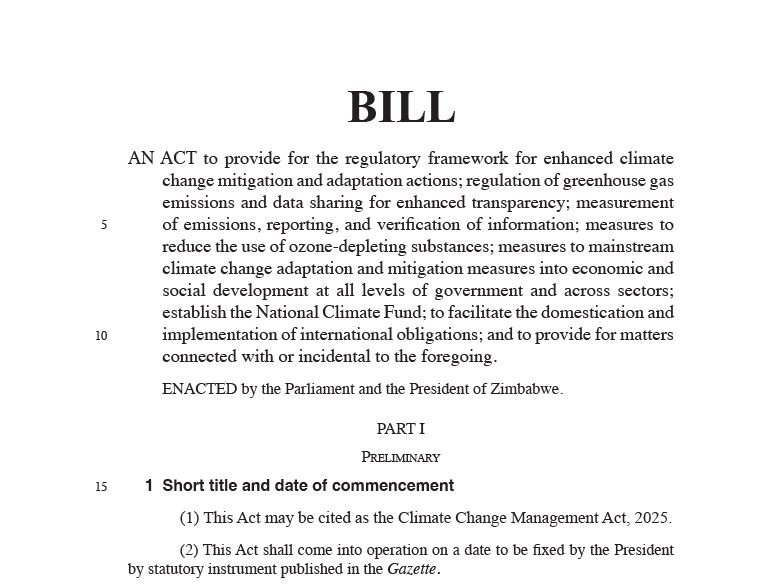Zimbabwe News Update
Rural communities are calling for simpler and more accessible language in discussions around the climate change management bill, saying many residents have been left out because the documents and consultations are too complex to understand. Villagers say the use of technical language prevents them from fully participating in shaping solutions to challenges that directly affect their lives and livelihoods. The issue was raised during theilihlo lemaphandleniprogramme aired on skyz metro fm in collaboration with community podium, which unpacked the climate change management bill. Speaking on the programme, vezimpilo ncube of dot youth zimbabwe said that while efforts are being made to engage the public, many community members remain sidelined due to language barriers.
“attendance during the public consultation meetings wasn’t pleasing. Community members were coming, but not most of them. In most cases, organisations, groups, and civil society organisations attended the consultative meetings while communities were largely absent. We wish communities could partake in these meetings in larger numbers so their voices, as people affected by climate change every day, can be heard,” she said. Ncube added that the bill is written in technical language that communities struggle to understand, which discourages participation. “the language used is hard for communities. They want simplified explanations and wish that all 16 official languages could be used during consultative meetings,” she said.
She also highlighted the need for advance notice and explanations contextualised to daily experiences. “even though the bill is not translated into local languages, communities want to be advised in advance and given explanations in the context of their daily lives so they can discuss issues affecting them directly,” she said. Ncube encouraged rural communities to take an active role in future consultations, warning that remaining silent could result in laws that do not reflect their realities. “let’s give ourselves time to seek information about climate change and work with different organizations and the government to address its effects, especially on vulnerable communities,” she said.
The climate change management bill of 2025 seeks to integrate climate considerations across all sectors, regulate greenhouse gas emissions, promote low-carbon development, and establish a framework for carbon trading. It also proposes a designated national authority and a national climate fund to finance adaptation and mitigation initiatives, in line with zimbabwe’s commitments under the paris agreement and the un framework convention on climate change (unfccc). Source: cite
#Allzimnews #breakingnews #zimbabwenews #trendingzimnews
